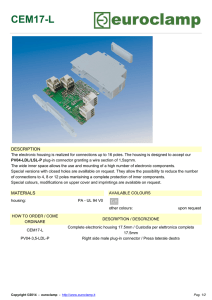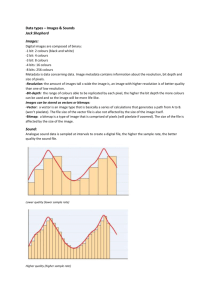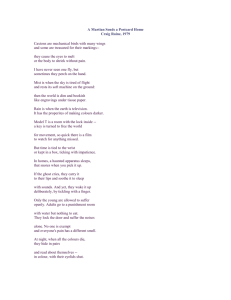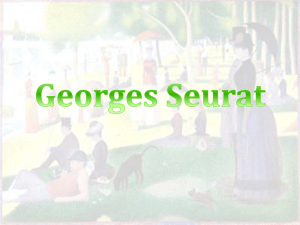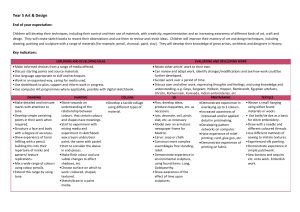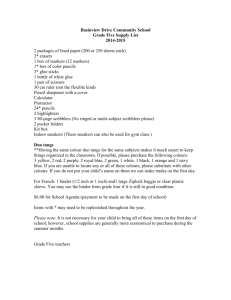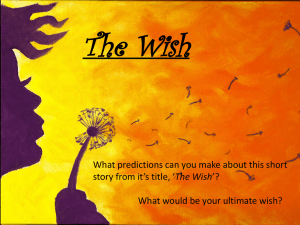New Routeins
advertisement
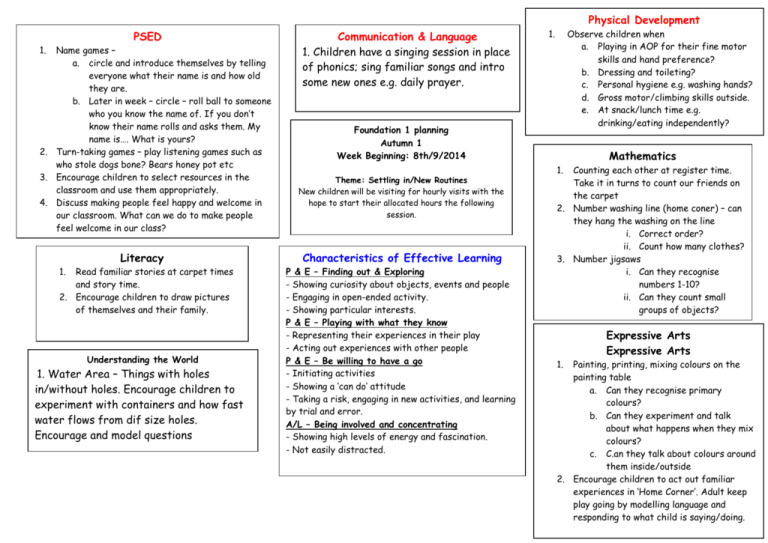
Physical Development PSED 1. Name games – a. circle and introduce themselves by telling everyone what their name is and how old they are. b. Later in week – circle – roll ball to someone who you know the name of. If you don’t know their name rolls and asks them. My name is…. What is yours? 2. Turn-taking games – play listening games such as who stole dogs bone? Bears honey pot etc 3. Encourage children to select resources in the classroom and use them appropriately. 4. Discuss making people feel happy and welcome in our classroom. What can we do to make people feel welcome in our class? Literacy 1. Read familiar stories at carpet times and story time. 2. Encourage children to draw pictures of themselves and their family. Understanding the World 1. Water Area – Things with holes in/without holes. Encourage children to experiment with containers and how fast water flows from dif size holes. Encourage and model questions Communication & Language 1. Children have a singing session in place of phonics; sing familiar songs and intro some new ones e.g. daily prayer. 1. Observe children when a. Playing in AOP for their fine motor skills and hand preference? b. Dressing and toileting? c. Personal hygiene e.g. washing hands? d. Gross motor/climbing skills outside. e. At snack/lunch time e.g. drinking/eating independently? Foundation 1 planning Autumn 1 Week Beginning: 8th/9/2014 Mathematics 1. Theme: Settling in/New Routines New children will be visiting for hourly visits with the hope to start their allocated hours the following session. Characteristics of Effective Learning P & E – Finding out & Exploring - Showing curiosity about objects, events and people - Engaging in open-ended activity. - Showing particular interests. P & E – Playing with what they know - Representing their experiences in their play - Acting out experiences with other people P & E – Be willing to have a go - Initiating activities - Showing a ‘can do’ attitude - Taking a risk, engaging in new activities, and learning by trial and error. A/L – Being involved and concentrating - Showing high levels of energy and fascination. - Not easily distracted. Counting each other at register time. Take it in turns to count our friends on the carpet 2. Number washing line (home coner) – can they hang the washing on the line i. Correct order? ii. Count how many clothes? 3. Number jigsaws i. Can they recognise numbers 1-10? ii. Can they count small groups of objects? Expressive Arts Expressive Arts 1. Painting, printing, mixing colours on the painting table a. Can they recognise primary colours? b. Can they experiment and talk about what happens when they mix colours? c. C.an they talk about colours around them inside/outside 2. Encourage children to act out familiar experiences in ‘Home Corner’. Adult keep play going by modelling language and responding to what child is saying/doing. PSED - Interested in others play and starting to join in. (22-36) - Keeps play going by responding to what others are saying or doing (22-36) - Demonstrates friendly behaviour, initiating conversations and forming good relationships with peers and familiar adults. (3050) - Separates from main carer with support and encouragement. (22-36) - Can select and use resources and activities with help. (30-50) - Is more outgoing towards unfamiliar people and more confident in new social situations. (30-50) - Seeks comfort from familiar adults when needed. (22-36) - Begins to accept the needs of others and can take turns and share resources, sometimes with support from others. (30-50) Physical Development Communication & Language - Runs safely on whole foot. (22-36) - Beginning to use three fingers (tripod grip) to hold writing tools. (22-36) - Imitates drawing simple shapes such as circles and lines. (2236) - May be beginning to show preference for dominant hand. (2236) - Climbs confidently and is beginning to pull themselves up on nursery play climbing equipment. (22-36) - Draws lines and circles using gross motor movements. (30-50) - Uses one-handed tools and equipment (30-50) - Holds pencil between thumb and two fingers, no longer using whole-hand grasp. (30-50) - Holds pencil near point between first two fingers and thumb and uses it with good control - Runs skilfully and negotiates space successfully, adjusting speed or direction to avoid obstacles. - Feeds self competently with a spoon. (22-36) - Drinks well without spilling. (22-36) - Clearly communicates their need for potty or toilet. (22-36) - Helps with clothing. (22-36) - Beginning to be independent in self care but still often needs adult support. - Can usually manage washing and drying hands. (30-50) - Dresses with help (30-50) - Listens with interest to the noises adults make when they read stories. (22-36) - Listens to others one-to-one and small groups when conversation interests them. (30-50) - Listens to stories with increasing attention and recall. (30-50) - Joins in repeated refrains and anticipates key events and phrases in rhymes and stories. (30-50) Review/Notes of spontaneous activities Literacy - Has some favourite stories, rhymes, songs, poems or jingles. (22-36) - Repeats words or phrases from familiar stories. (22-36) - Listens to and joins in with stories and poems, one-to-one and small groups - Distinguishes between the different marks they make. (22-36) - Sometimes gives meaning to marks as they draw and paint (3050) Mathematics - Recites some number names in sequence (22-36) - Uses some language of quantities e.g. ‘more’ and ‘a lot’ - Recites numbers in order 1-10 - Counts objects to 10 and beginning to count beyond 10 Understanding the World - Talks about why things happen and how things work. (3050) Expressive Arts - Joins in singing some favourite songs. (22-36) Experiments with blocks, colours and marks. (22-36) Explores colour and how colour can be changed. (30-50) Explores what happens when they mix colours (40-60) Beginning to make-believe by pretending. (22-36) Engages in imaginative role-play based on own first hand experiences. (30-50)

